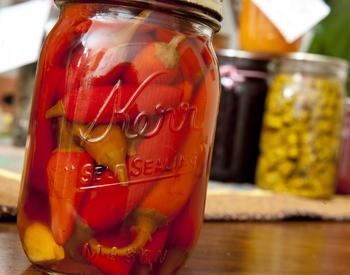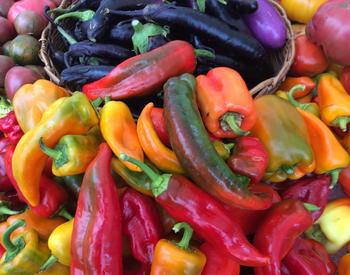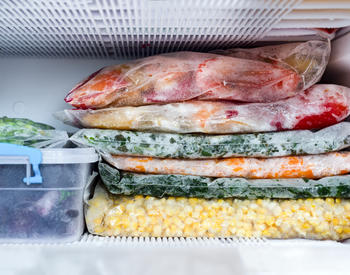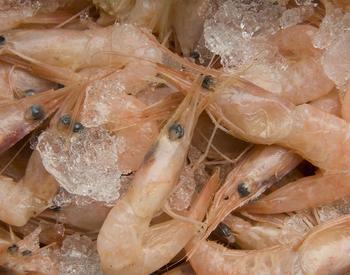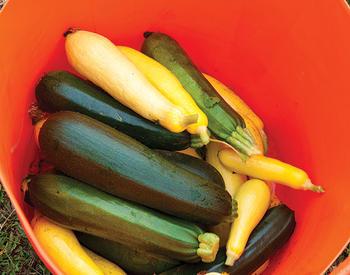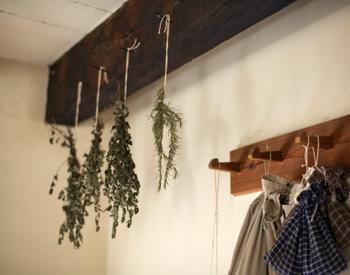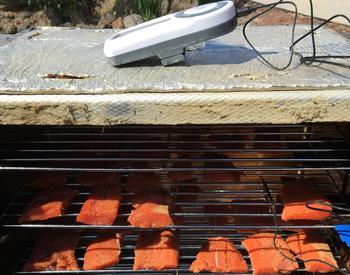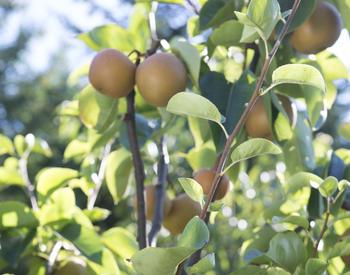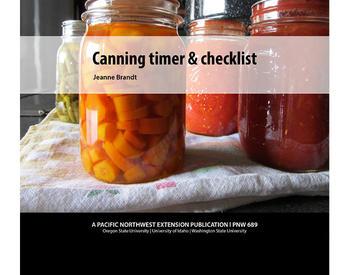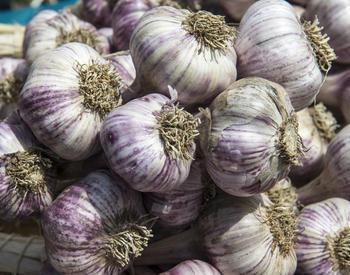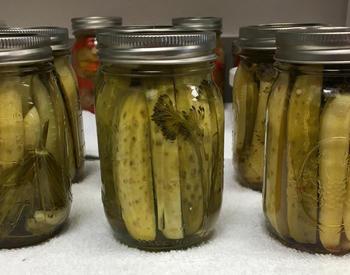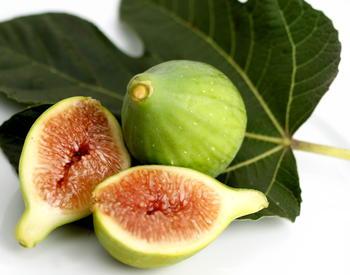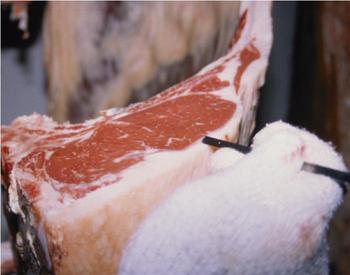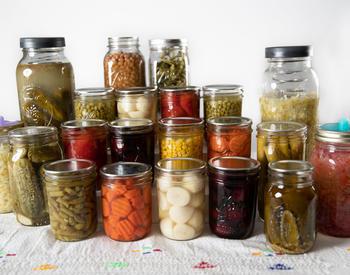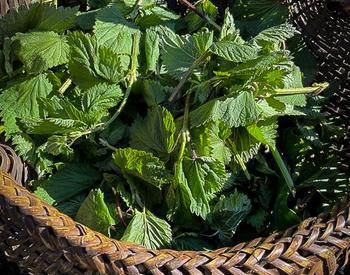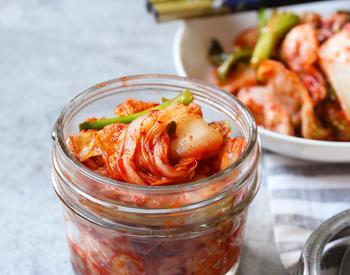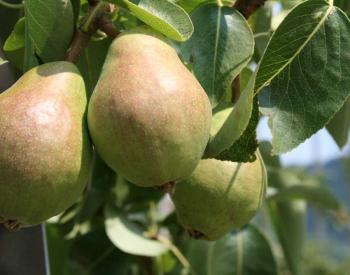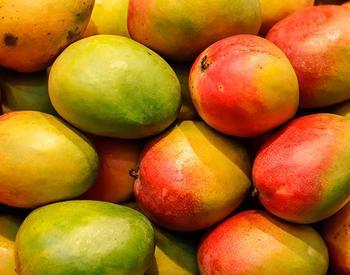Download this publication as a PDF
There are two kinds of pickles: brined or fermented, and quick.
Brined or fermented pickles
Brined or fermented pickles are made by soaking cucumbers in brine (salt water) for three to six weeks. During this time the lactic acid bacteria, which tolerate salt, convert the carbohydrate in the cucumbers to lactic acid. Lactic acid preserves the pickles and gives them good flavor. The salt concentration is very important. Too little salt causes undesirable organisms to grow. Too much salt kills the lactic acid bacteria. Salt cannot be reduced when making brined or fermented pickles and salt substitutes cannot be used.
Fresh-pack pickles
Fresh-pack pickles or quick-process pickles are very popular when time is limited. Instead of allowing the lactic acid bacteria to produce acid, the acid is poured over cucumbers in the form of vinegar. Fresh-pack pickles are usually soaked for several hours or overnight in a brine (salt water). This soaking pulls water out of the pickles and helps them absorb the final pickling solution (vinegar, salt and other flavorings).
Salt can be removed from most fresh-pack or "quick" pickles without affecting the safety of the product if the recipes contain as much or more vinegar than water or other liquid. In other words, if the recipe calls for one quart water, it should have at least one quart vinegar, as a rule of thumb. Vinegar may even be the only liquid ingredient.
Processing pickles
Quick pickles are processed in a boiling water canner to prevent spoilage during storage. Ask your county Extension office for time adjustments if you live above 1,000 feet. Pack pickles into sterilized jars. To sterilize, place jars right side up on rack in a boiling water bath canner. Fill the canner and jars with hot (not boiling) water to 1 inch above the tops of the jars. Boil 10 minutes.
Do not use the low-temperature pasteurization method for processing pickles when making reduced-sodium pickles.
Zucchini mustard pickles
Yield: 7 pints
- 4 quarts (about 6 lbs.) medium size zucchini, sliced
- 1 1/2 cups (about 1 lb.) small white onions, sliced
- 2 large garlic cloves
- 1/3 cup salt
- 2 quarts (2 trays) ice, crushed or cubes
- 3 1/2 cups sugar
- 1 1/2 tsp turmeric
- 1 1/2 tsp celery seed
- 2 Tbsp mustard seed
- 3 cups white vinegar
Directions:
- Wash zucchini thoroughly using a vegetable brush, drain on a rack. Slice unpeeled zucchini into 1/8 inch to 1/4 inch slices; discard ends. Add onions and garlic
- Add salt and mix thoroughly. Cover with crushed ice or ice cubes. Let stand 3 hours. Drain thoroughly; remove garlic cloves.
- Combine sugar, spices and vinegar. Heat just to boiling. Add drained zucchini and onion slices and heat 5 minutes.
- Pack hot pickles loosely into sterile, hot pint jars and cover with hot liquid to 1/2 inch from top. Adjust jar lids.
- Process in a boiling water canner for 5 minutes (start to count processing time as soon as the water in canner returns to boiling). After processing, take canner off heat. Remove lids. Wait 5 minutes before removing jars.
Reduced-sodium sliced sweet pickles
Yield: 4-5 pints
- 3 pounds pickling cucumbers (3-4 inch)
- Brining solution:
- 1 quart distilled white vinegar (5%)
- 1 Tbsp canning or pickling salt
- 1 Tbsp mustard seed
- 1/2 cup sugar
- Canning syrup:
- 1 2/3 cups distilled white vinegar (5%)
- 3 cups sugar
- 1 Tbsp whole allspice
- 2 1/4 tsp celery seed
Directions:
- Wash cucumber. Cut into 1/4-inch slices discarding blossom end.
- In a large kettle, mix the ingredients for the brining solution.
- Add the cut cucumbers.
- Cover and simmer until the cucumbers change color from bright to dull green (about 5-7 minutes).
- Drain cucumber slices.
- Fill jars, covering with hot canning syrup, leaving 1/2 inch headspace.
- Adjust lids and process pints 10 minutes in a boiling water canner.
- After processing, take canner off heat.
- Remove lid.
- Wait 5 minutes before removing jars.
Salt-free zucchini dills
Yield: about 10 pints
- 6 pounds zucchini
- 2 cups celery, thinly sliced
- 2 cups onion, chopped
- 1/4-1/2 cups sugar or honey
- 3 Tbsp dill seed
- 2 cups cider vinegar
- 5 cloves garlic
Directions:
- To prepare zucchini, peel, seed and slice lengthwise into strips about 1/4 inch thick and 4 inches long (makes about 3 quarts).
- Mix all vegetables together in a large bowl. Put ice cubes over the top. Cover with a towel.
- Let stand at room temperature for about 3 hours.
- Combine sugar, dill seed and vinegar.
- Heat and stir constantly to boiling.
- Add vegetables and repeat to boiling.
- Pack hot into sterilized jars, adding a piece of peeled, halved garlic per jar.
- Adjust caps. Process 5 minutes in a boiling water canner.
- After processing, take canner off heat.
- Remove lid. Wait 5 minutes before removing jars
Low-salt kosher dills
Yield: 6 quarts
- 8 pounds pickling cucumbers (5-6 inches)
- 12 heads dill
- 6 teaspoons dill seed
- 3 cloves garlic, finely cut
- 1 1/2 tsp red pepper crushed
- 4 1/2 cups water
- 4 1/2 cups vinegar
- 1/4 cup + 2 Tbsp salt
Directions:
- Wash cucumbers thoroughly with a brush. Trim blossom ends. Drain. Slice lengthwise or into crosswise slices.
- Pack cucumbers into clean quart canning jars. To each jar, add 2 small heads fresh dill, 1 teaspoon dill seed, 1/2 clove garlic, and 1/8 teaspoon red pepper.
- Pour boiling brine of water, vinegar and salt over cucumbers in sterile jars, leaving 1/2 inch headspace. Adjust lids.
- Process in a boiling water canner 5 minutes. After processing, take canner off heat. Remove lid.
- Wait 5 minutes before removing jars. Pickles should be ready to eat in 6 weeks or so
Note: If more brine is needed, mix in the same proportion. If brine is too tart, add sugar. Do not add water.
Related articles
Source: OSU Master Food Preserver Program
